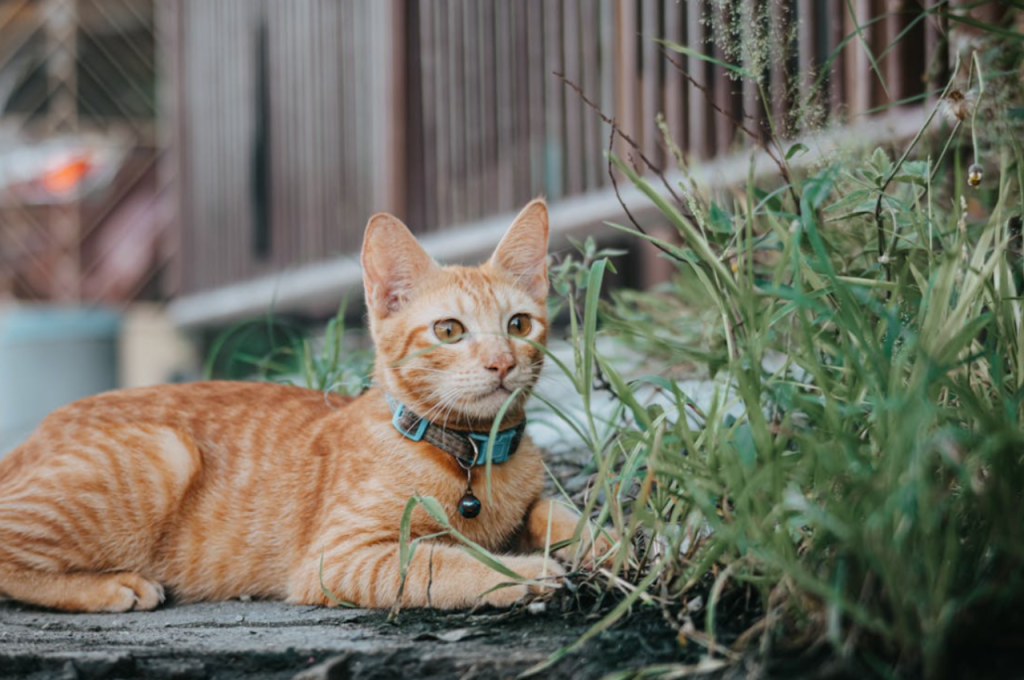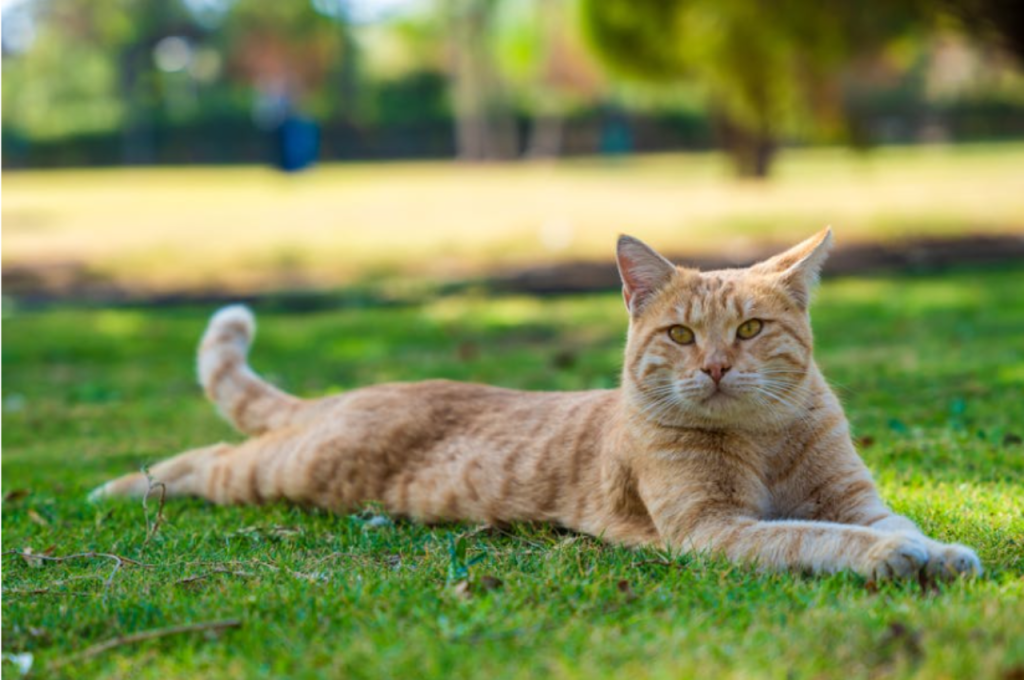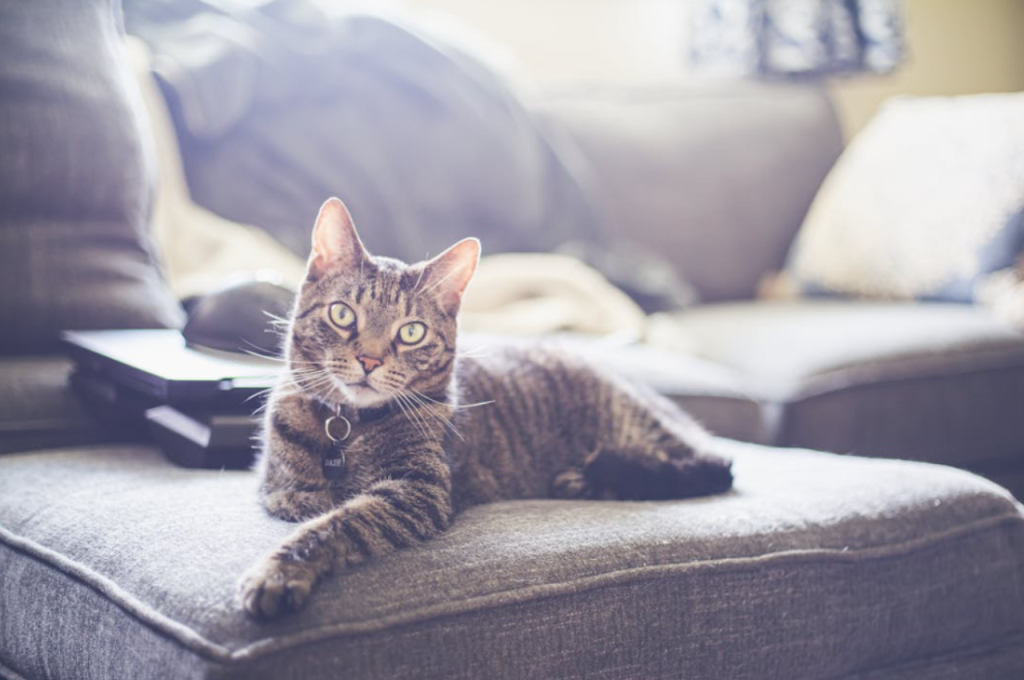To make a cat with kidney failure comfortable, provide a quiet and stress-free environment, ensure they have access to fresh water, and feed them a special renal diet prescribed by a veterinarian. Caring for a cat with kidney failure can be challenging, but with the right approach, you can help improve their quality of life and make them more comfortable.
Kidney failure, also known as renal failure, is a common condition in cats, especially as they age. It occurs when the kidneys are no longer able to function properly, leading to a buildup of toxins in the body. While there is no cure for kidney failure, there are steps you can take to manage the condition and alleviate discomfort for your furry friend. We will explore various strategies and tips to provide the best care for a cat with kidney failure, ensuring they have a comfortable and happy life.
Recognizing Kidney Failure in Cats
Recognizing kidney failure in cats is crucial for early treatment and management. Common signs include increased thirst and urination, loss of appetite, weight loss, and vomiting. Cats may also become lethargic and experience bad breath with a possible ammonia-like smell. As the condition progresses, you may notice poor coat quality and signs of dehydration despite drinking more water. Regular vet check-ups, including blood and urine tests, are important to catch kidney issues early. If you observe any of these symptoms, consult your veterinarian immediately for proper diagnosis and treatment options.

Identifying Symptoms
Kidney failure in cats can be difficult to detect in its early stages. Look out for symptoms such as increased thirst, frequent urination, weight loss, and poor coat quality. Other signs include vomiting, lack of appetite, and lethargy.
Importance of Early Detection
Early detection of kidney failure is crucial for improving the quality of life for cats. Timely intervention can help manage the condition and slow down its progression. Regular veterinary check-ups and blood tests can aid in catching kidney issues early on, allowing for effective treatment.
Veterinary Care and Diagnosis
Veterinary care and diagnosis play a crucial role in ensuring the well-being of a cat with kidney failure. Early detection and proactive management are essential to provide comfort and improve the quality of life for the feline companion. Let’s delve into the key aspects of veterinary care and diagnosis for cats with kidney failure.
Tests and Procedures
Diagnostic tests and procedures are utilized to assess the extent of kidney failure and identify any underlying conditions. These may include blood tests to measure creatinine and blood urea nitrogen levels, urinalysis to evaluate the kidneys’ ability to concentrate urine, and imaging tests such as ultrasound to visualize the kidneys.
Interpreting Results
Upon receiving the test results, the veterinarian will interpret the findings to gauge the severity of the kidney failure and determine the most suitable treatment plan. They will consider factors such as the cat’s overall health, symptoms, and the presence of any concurrent illnesses to develop a comprehensive approach.
Dietary Management
When it comes to managing a cat with kidney failure, dietary management plays a crucial role in maintaining their comfort and well-being. Making appropriate changes to their diet can help alleviate symptoms and improve their quality of life. Here are some essential dietary management tips to consider:
Prescription Diets
Prescription diets formulated specifically for cats with kidney failure are designed to support their overall health and manage the progression of the condition. These diets are low in protein and phosphorus, and contain high-quality omega-3 fatty acids to support kidney function.
Hydration Tips
Ensuring that your cat stays well-hydrated is crucial in managing kidney failure. Encourage regular water intake by providing a constant supply of fresh water in a clean bowl. You can also consider incorporating wet food into their diet, as it contains a higher water content compared to dry food.
Medications and Treatments
When it comes to managing kidney failure in cats, medications and treatments play a crucial role in keeping your feline friend comfortable. Here’s a look at the pharmaceutical interventions and alternative therapies that can help alleviate symptoms and improve your cat’s quality of life.
Pharmaceutical Interventions
Pharmaceutical interventions involve the use of medications prescribed by your veterinarian to address specific symptoms and complications associated with kidney failure in cats.
- Prescription medications can help manage conditions such as high blood pressure and anemia.
- Phosphate binders aid in reducing phosphorus levels in the blood, which can alleviate strain on the kidneys.
- Fluid therapy helps maintain hydration and support kidney function.
Alternative Therapies
Alternative therapies offer complementary approaches to traditional treatments, focusing on holistic well-being and symptom management.
- Acupuncture may help relieve pain and improve overall comfort.
- Herbal supplements like slippery elm and marshmallow root can support kidney health.
- Dietary modifications tailored to kidney disease can slow its progression and enhance your cat’s well-being.
Creating a Comfortable Environment
Creating a comfortable environment is crucial for a cat with kidney failure. Providing a soft bed, litter box nearby, and easy access to food and water can help alleviate discomfort. Regular vet visits and medication can also improve their quality of life.

Creating a Comfortable Environment is crucial for cats with kidney failure. Making changes to their living spaces and reducing stress can help them feel more comfortable and improve their quality of life. Here are some strategies that can help:
Adjusting Living Spaces
Cats with kidney failure may have difficulty getting around, so it’s important to make their living spaces as comfortable and accessible as possible. Consider providing ramps or steps to help them climb onto furniture or reach their litter box. Place food, water, and litter boxes in easily accessible locations. Make sure the litter box is shallow and has low sides so your cat can easily get in and out. Provide soft bedding in warm and quiet areas, away from drafts and noise.
Stress Reduction Strategies
Cats with kidney failure may become stressed easily, which can worsen their condition. Reduce stress by providing a calm and quiet environment. Avoid sudden loud noises or movements around your cat. Provide a hiding place, such as a box or a bed with high sides, where your cat can retreat if they feel overwhelmed. Spend time with your cat, but avoid overstimulation. Gently pet your cat and talk to them in a soothing voice. Consider playing soft music or using pheromone sprays to help your cat relax. Making these adjustments to your cat’s living space and reducing stress can help them feel more comfortable and improve their quality of life. Remember to consult with your veterinarian about any changes you plan to make to your cat’s environment, as they can provide additional guidance and support.
Monitoring and Ongoing Care
To make a cat with kidney failure comfortable, monitoring and ongoing care are crucial. This involves regular check-ups with the veterinarian, monitoring the cat’s diet and water intake, and administering medication as prescribed. Pain management and providing a comfortable living environment are also important for the cat’s well-being.
Cats with kidney failure require special attention and care to ensure they are comfortable. Monitoring their health changes and providing ongoing care are crucial in managing their condition. In this section, we will discuss the importance of tracking health changes and regular vet check-ups for cats with kidney failure.
Tracking Health Changes
It’s essential to monitor your cat’s health changes to ensure their condition is not worsening. The following are some of the changes you should look out for:
- Weight loss or gain
- Decreased appetite
- Increased thirst and urination
- Vomiting or diarrhea
- Changes in behavior or activity level
If you notice any of these changes, it’s important to contact your vet immediately. Your vet may want to adjust your cat’s treatment plan to manage their condition better.
Regular Vet Check-ups
Regular vet check-ups are essential to ensure your cat is receiving the best care possible. During these check-ups, your vet will assess your cat’s overall health and monitor their kidney function. They may also recommend changes to your cat’s diet and medication. It’s essential to follow your vet’s recommendations and attend all scheduled appointments. Regular check-ups can help identify any potential issues early, allowing for prompt treatment and better management of your cat’s condition.
In conclusion, monitoring your cat’s health changes and providing ongoing care are crucial in managing kidney failure. Regular vet check-ups and tracking health changes can help ensure your cat is comfortable and receiving the best care possible. Remember to contact your vet immediately if you notice any changes in your cat’s health or behavior.
Emotional Support and Enrichment
To make a cat with kidney failure comfortable, focus on providing emotional support and enrichment. Create a calm and cozy environment with soft bedding and easy access to their favorite resting spots. Offer a variety of toys and gentle interactive activities to stimulate their mind and provide gentle exercise. Ensure they have access to fresh, clean water and special dietary food recommended by your vet. Regularly monitor their health and comfort levels, adjusting their care routine as needed. Your presence and affectionate interactions can also help ease their anxiety and stress, making their daily life more comfortable.
Bonding Activities
Bonding activities are vital for providing emotional support and enrichment to a cat with kidney failure. Create a comforting environment with soft bedding and cozy spots where your cat can rest peacefully. Engage in gentle play, using interactive toys to stimulate their mind and keep them active without overexertion. Offer favorite treats and maintain a calm demeanor during interactions to reduce stress. Regularly petting and speaking softly can strengthen your bond and provide reassurance. Ensure their comfort by keeping their living area clean and providing easy access to fresh water and appropriate food. These efforts help improve their quality of life and offer them emotional support during this challenging time.
Mental Stimulation
Keep your cat’s mind active with puzzle toys, treat dispensers, and rotating toys regularly.
End of Life Considerations
End of life considerations for a cat with kidney failure involve creating a supportive and comfortable environment to ease their suffering. To make a cat with kidney failure comfortable, focus on their comfort and quality of life. Provide a cozy, quiet resting place where they can feel safe and relaxed. Ensure they have easy access to fresh water and high-quality, palatable food to encourage eating. Monitor their condition closely and consult your veterinarian about pain management and any necessary medications. Keep their litter box clean and easily accessible to reduce stress. Providing gentle affection and minimizing disruptions can help make their final days more peaceful. Regular veterinary visits will guide you in managing their symptoms and maintaining their comfort.

Quality of Life Assessment
When managing a cat with kidney failure, a quality of life assessment is essential to ensure their comfort and well-being. Key considerations include providing a comfortable and warm resting place, ensuring access to fresh water, and a suitable diet tailored to their condition. Regular veterinary check-ups are crucial to monitor their health and adjust treatments as needed. Pain management and minimizing stress through gentle handling and a calm environment are also important. Offering affection and attention can improve their emotional well-being. Pay close attention to changes in their behavior or physical condition, and consult your veterinarian to make informed decisions about their care and comfort as they approach the end of life.
Euthanasia and Grieving
Discuss euthanasia with your vet as a compassionate option when your cat’s suffering becomes unbearable.
Conclusion
Ensuring the comfort of a cat with kidney failure requires a compassionate and informed approach. By providing a balanced diet, managing hydration, administering medications, and creating a stress-free environment, you can greatly improve your feline friend’s quality of life. Regular veterinary check-ups and open communication with your vet are also crucial.
Remember, every cat is unique, so it’s important to tailor the care to their individual needs. By following these guidelines, you can help your beloved pet navigate through this challenging health condition with love and care.
